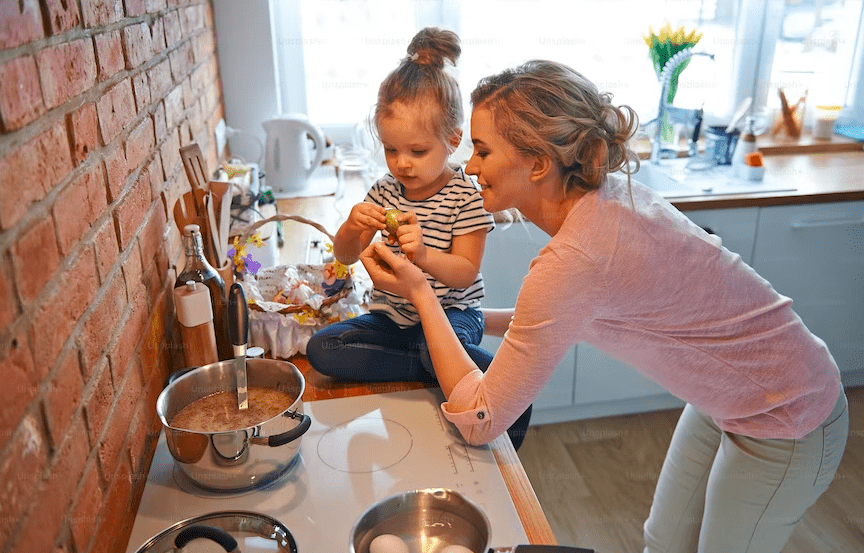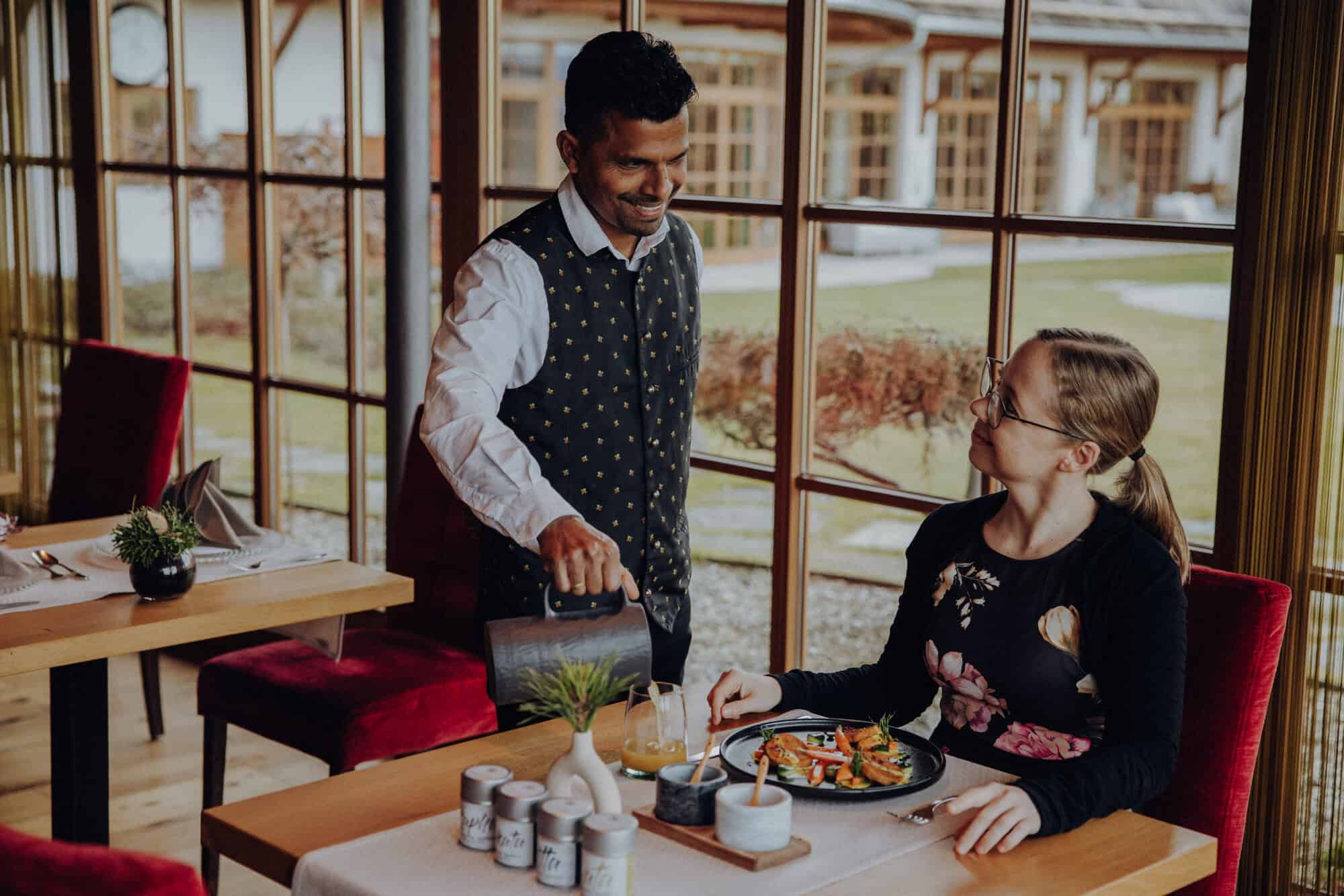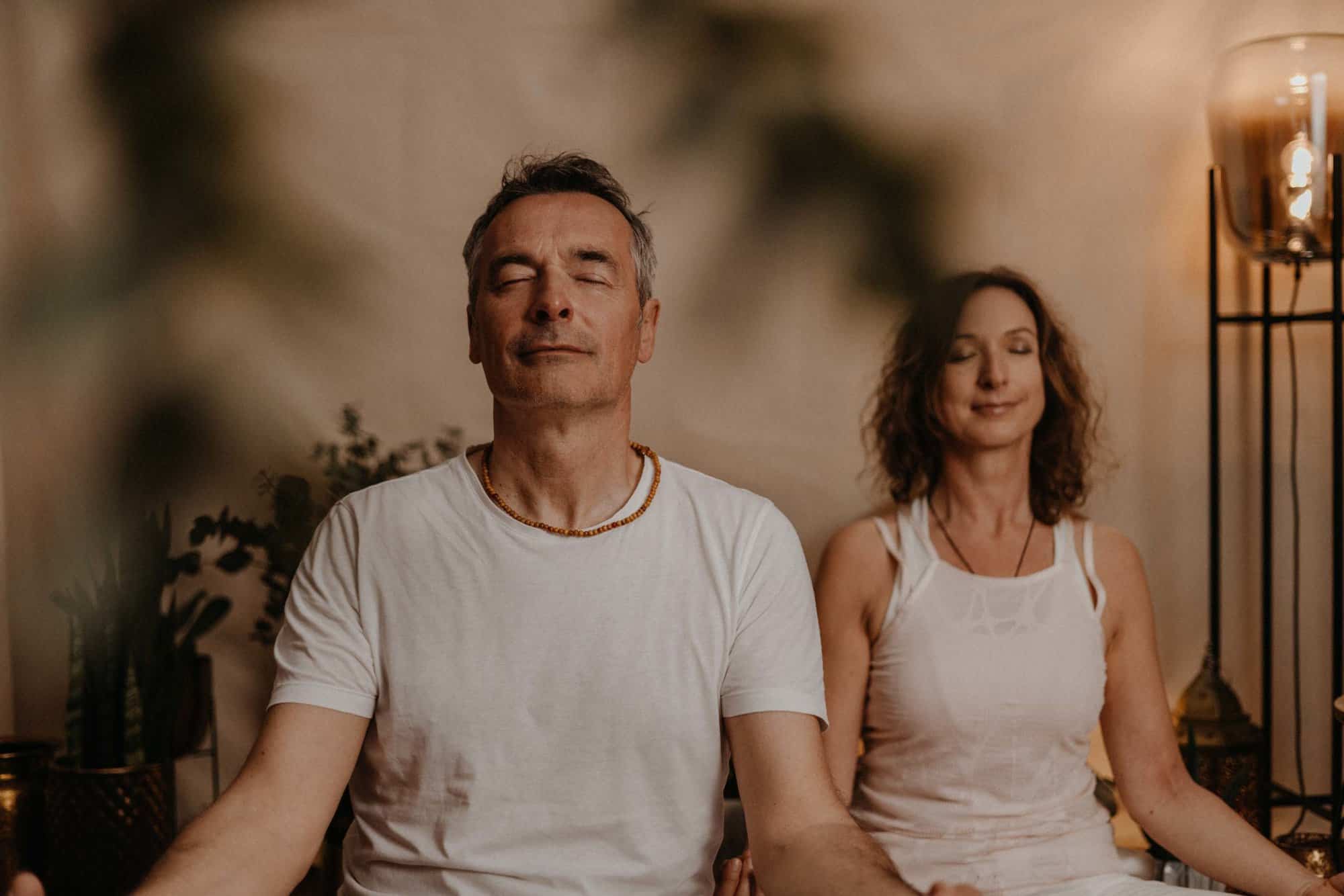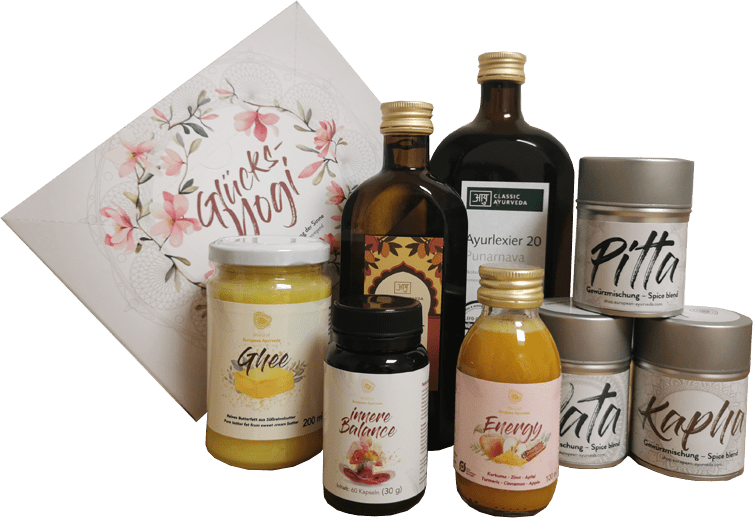Easter is just around the corner - and with it, hopefully, lots of time to spend with family and friends. Those who come together also want to enjoy together. Why not try Ayurvedic dishes that are good for body and mind? We have put together three Ayurvedic Easter recipes for you, which not only taste delicious, but will also benefit your Doshas and give you and your loved ones fresh energy for hours together.
Do you know it too? In the joyful hustle and bustle, the table bends under hearty treats, children search for chocolate eggs and adults toast to the time together. In the afternoon at the latest, however, tiredness sets in, because the traditional Easter dishes are difficult to digest and, depending on your constitution, also not tolerable.
The common indulgence in abundance on the holiday is no coincidence, as it marks the end of Lent in the Christian calendar. From the point of view of European Ayurveda ®, however, this change from renunciation to gluttony is not very helpful, as it puts far too much strain on the body. Foods with too much sugar or fats produce toxins(ama) that can lead to indigestion, fatigue and inflammation in the body.
Easy Easter recipes that are really good for you
Cooking an Ayurvedic holiday menu is not difficult at all. With seasonal vegetables (asparagus and carrots), easily digestible dal, quinoa and health-promoting spices, you can create new taste experiences. Who knows: Maybe one or the other course will become a holiday classic in the years to come?
By the way: In Ayurveda, eggs - enjoyed in moderation - are said to have a strengthening effect. So they can be part of your Easter meal without hesitation.
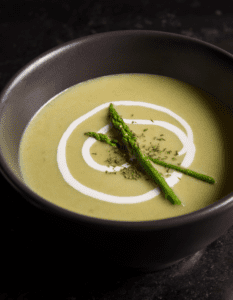
Appetizer
(Almost) classic cream of asparagus soup
Ingredients for 4 people:
- 500 g domestic green asparagus
- 1l organic vegetable broth
- 125 ml cream
- 3 tablespoons rice flour
- 1 tsp lemon juice
- 2 tsp lemon zest (organic, untreated)
- Salt
- Freshly ground white or black pepper
Preparation:
- Peel the asparagus thoroughly, cut it into pieces and cook it in a little vegetable stock until soft. Add the remaining vegetable broth and puree the asparagus with the liquid.
- Set aside 4 tablespoons of cream. Mix the rice flour with the remaining cream. Add both to the soup and let it boil again.
- Season the soup with lemon juice, salt and pepper. Decorate each soup plate to taste with 1 tablespoon of cream, some grated lemon zest and pepper.
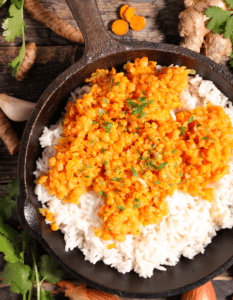
Main course
Quinoa kitchari
Ingredients for 4 people:
- ½ cup mung dal
- 3 tablespoons ghee
- 1 tsp fresh ginger (peeled and chopped)
- 1 tablespoon coriander
- 1 tablespoon cumin
- 1 tablespoon fennel seeds
- ½ tsp cinnamon
- ¾ cup quinoa (washed)
- 1 large carrot
- 1 fennel bulb with green (washed and chopped)
- 1 handful raisins
- 1 small zucchini (washed and cut into small pieces)
- Salt, pepper
- 1 squeeze lemon juice
Preparation:
- Soak the mung dal in water overnight. In the morning, rinse it thoroughly.
- Heat the ghee in a large, deep pan and sauté the ginger with all the spices over medium heat. Add the mung dal, raisins, quinoa, carrot and fennel (without greens) and sauté the mixture.
- Then add 2 cups of water and let the kitchari simmer on low heat for about 25 minutes. Do not stir the ingredients, otherwise starch will come out of the quinoa and the dish may burn. Add more water if necessary.
- After 15 minutes, add the chopped zucchini to the pot. When the mung dal is soft, season the kitchari with 1 teaspoon of salt, pepper and lemon juice and sprinkle the finished plates with fennel greens.
Tip: You can also replace mung dal and quinoa with a ready-made kitchari mixture (classic with rice). Add the mixture to the pan along with raisins, carrots and fennel.
Dessert
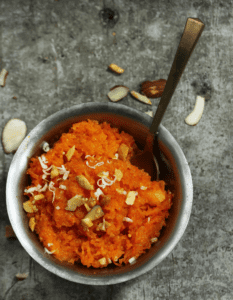
Sweet carrot halwa
Ingredients for 4 people:
- 800 g carrots
- 4 tablespoons ghee
- approx. 20 chopped walnut kernels
- ½ tsp ground cardamom
- ½ tsp ground vanilla
- 1/2l tsp cinnamon
- 4 tablespoons raisins
- 4 tablespoons maple syrup
Preparation:
- Peel the carrots and grate them finely. Heat the ghee in a pot and roast the walnut kernels and spices for about 3 minutes.
- Add the grated carrots, raisins and maple syrup and cook the mixture on low heat for about 5 minutes.
- Serve the halva warm.
By the way, you can find more delicious dishes from the European Ayurveda® cuisine in our EA® cookbook, available in our online store. We wish you a lot of fun while cooking!

